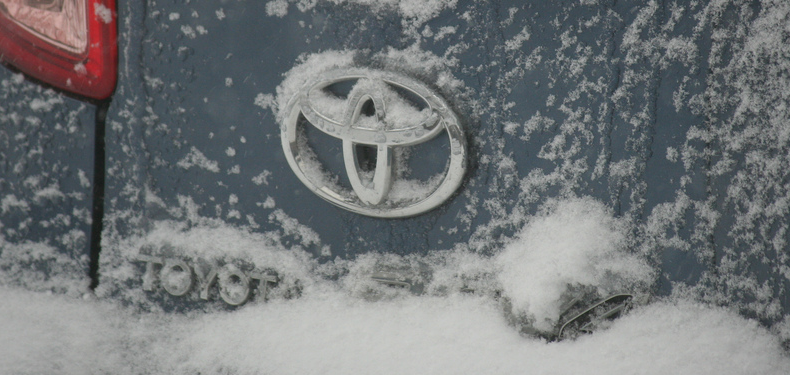Toyota Expected To Pay $1.2 Billion To Settle Unintended Acceleration Criminal Probe

(cleighud)
Technically, reports the Wall Street Journal, the deal would result in a deferred prosecution for Toyota. If the company meets certain conditions set by the court and monitored by a third-party overseer, the prosecution would never come to fruition.
The acceleration issues began coming to light in 2009 following the tragic death of an off-duty California Highway Patrolman and his family in a Lexus. The vehicle went off the road at around 120 mph, but not before someone in the car called 9-1-1 urgently seeking help because they could not get the car to slow down.
This incident and other reports led to the recall of millions of Toyota vehicles, along with hundreds of civil lawsuits, some of which have been settled and some that continue to linger in the legal system.
NHTSA has tied sudden acceleration problems to five deaths. However, the root cause of the problem has been a much-disputed topic. Some have claimed it was a problem with the vehicles’ electrical systems, while Toyota blamed it on unsecured floor mats that became trapped under the accelerator or brake pedals, making it difficult or impossible to control the speed of the cars.
The DOJ investigation, led by FBI investigators in Manhattan, focused on Toyota’s disclosure of unintended acceleration concerns in its vehicles in the years before the recall.
According to the Journal, federal prosecutors found evidence that Toyota made misleading statements about safety problems that were revealed by its own internal audits, and that the company made misleading statements to the government and to the public about those safety issues.
In addition to the millions Toyota has already paid out in customer lawsuits, it has paid a total of $66.2 million to NHTSA for four recent claims that the carmaker failed to report safety defects to the government.
Toyota says it is trying to put this stain on its record behind it.
“Toyota has cooperated with the U.S. attorney’s office in this matter for more than four years,” a rep for the carmaker tells the Journal. “During that time, we have made fundamental changes to become a more responsive and customer-focused organization, and we are committed to continued improvements.”
Want more consumer news? Visit our parent organization, Consumer Reports, for the latest on scams, recalls, and other consumer issues.

